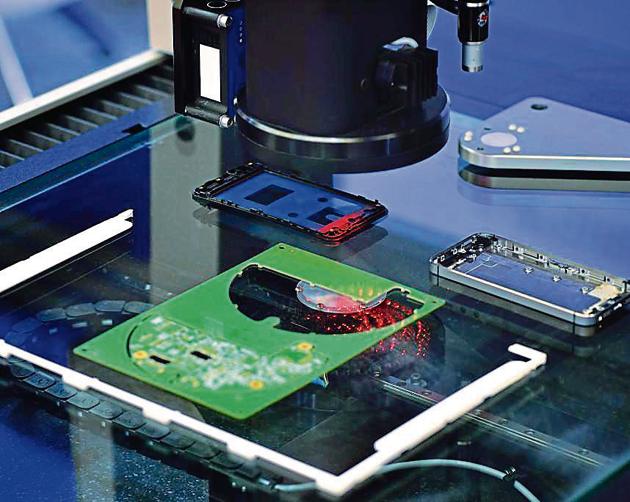Mobile manufacturing falls 40% as note ban spells wrong number for industry
At a time when the government is looking to push digital payments, the production of mobile phones in India is down by at least 40%.
At a time when the government is looking to push digital payments, the production of mobile phones in India is down by at least 40%.

The ban on circulation of banknotes of Rs 500 and Rs 1,000 has hit the industry hard, with handset manufacturers, including Foxconn, Flextronics and GDN-Wistron, may have been looking to cut jobs or sending employees on leave.
“Contract manufacturers are seeing a 40% slump in production, with consumers putting off purchases, which is killing demand,” an industry executive told HT on the condition of anonymity. “The situation is so bad that they might have to take tougher decisions regarding employees,” he added.
Foxconn, which makes iPhones for Apple, has asked 1,700 employees out of its 8,000-strong workforce in the country to go on paid leave. The company accounts for nearly 50% of all smartphones assembled in India, and makes devices for companies such as Nokia, Xiaomi, Oppo and Gionee, among others.
Flextronics manufactures phones for Lenovo, Motorola, Huawei and Honor, while GDN-Wistron produces handsets for LG, HTC, Oppo and Zen Mobiles.
Both Flextronics and GDN-Wistron did not respond to HT’s requests for comments on the layoffs.
“The situation is set to become worse, especially for companies that manufacture feature phones, budget and mid-segment smartphones,” said the executive quoted above. Local players, including Intex, Lava and Karbonn, who have their own assembly plants, are also planning to either cut or put on bench (an industry jargon for not been allotted any project or ’real’ work) 10% to 40% of their staff.
“Due to the impact of demonetisation, we have halted the production of cellphones for the next 10 days. The staff, at the manufacturing units, has been sent on leave for this period,” a Lava spokesperson said. “We are monitoring the situation closely and hoping that it will improve - which is primarily dependent on the government’s strategic plan to infuse sufficient cash in the system or make the country digitally enabled. We will plan our next course of action based on how the situation improves or deteriorates.”
Both Intex and Karbonn declined to comment on the issue. However, according to reports, a senior executive from Intex said last week that December was bad for the company. “The first week of December has been really bad and now we’re thinking of cutting production and deferring imports of semi-knocked down kits,” reports quoted Unnikrishnan M Thazhath, product head at Intex Technologies, as saying.
A senior executive from Gionee also said that the company’s premium segment has not been hit but their budget and medium segment might have taken a hit.
The Rs 1,30,000-crore cellphone manufacturing industry primarily depends on cash, and the government’s move to ban old notes is a double-edged sword for the industry.
According to Pankaj Mahindroo, president, Indian Cellular Association, handset sales have fallen 50% since November 8, when the government announced its demonetization drive. Retailers do not have the money to pay distributors, which has ultimately hit the cash flow of manufacturers.
“Orders for imports are placed at least two to three months in advance and payment terms are normally through letters of credit (LCs). The LC’s term may be 45-120 days. Cash generated from current sales helps in opening new LCs for placed/committed orders as well as payment of LCs that are due. Demonetisation has currently left companies cash-strapped, and they are unable to make payments for the LCs that are currently due,” he added.
“We have sent our recommendations to the government, asking them to exchange LCs with cash credit limits at banks. Tools, such as a bearer demand draft in standard denominations of R5,000, R10,000 and R50,000, could be be issued by banks with a 90-day validity.”
To boost the adoption of cashless transactions across the country, the government has announced a slew of measures as well as cash rewards to incentivise digital payments. On December 8, finance minister Arun Jaitley announced incentives, ranging from discounts on fuel and railway tickets to free insurance cover for those using digital payment modes.





